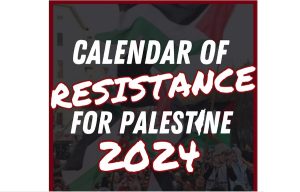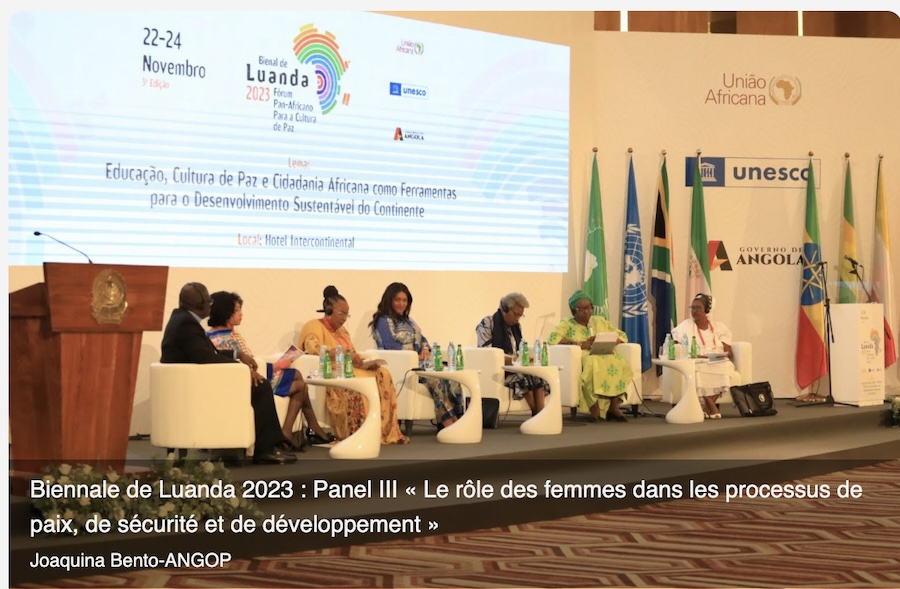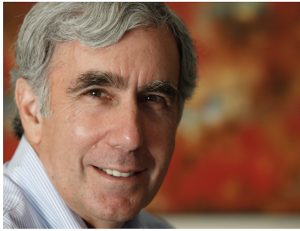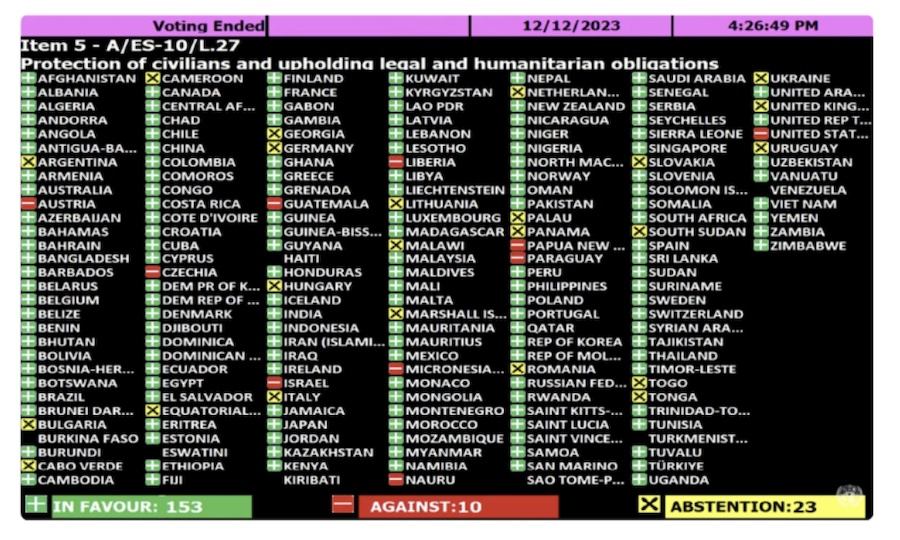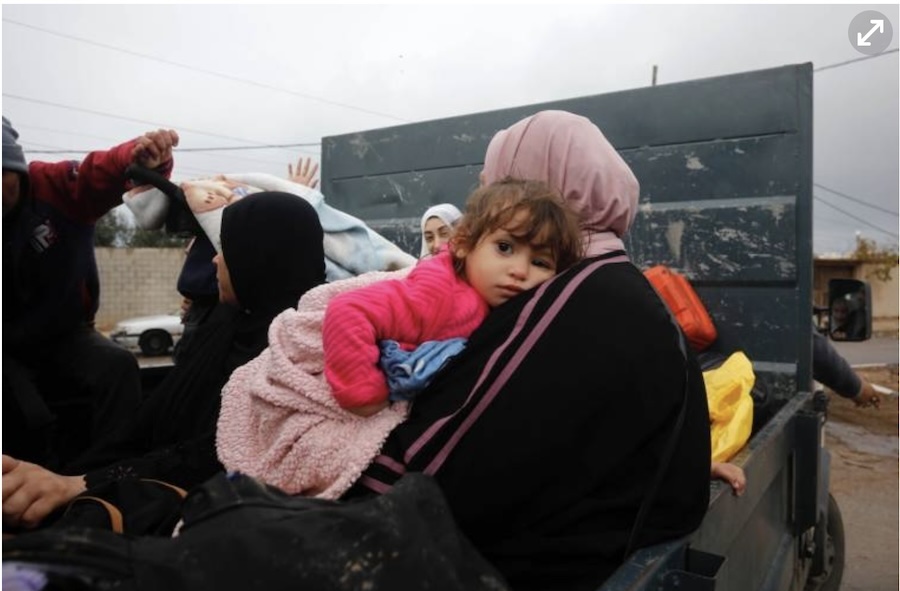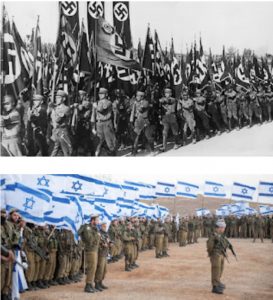FREE FLOW OF INFOMATION . .
An article from PressTV Iran with additions as indicated
Pro-Palestinian protesters took to the streets around the world on the “day of action,” calling for an immediate ceasefire in Gaza as the Israeli aggression reached the 100-day mark.
The global day of action on Saturday saw demonstrations take place in various international capitals, including Washington DC, London, Paris, Berlin, Rome, Johannesburg, Abuja, Tokyo, Islamabad, Jakarta, and Kuala Lumpur.
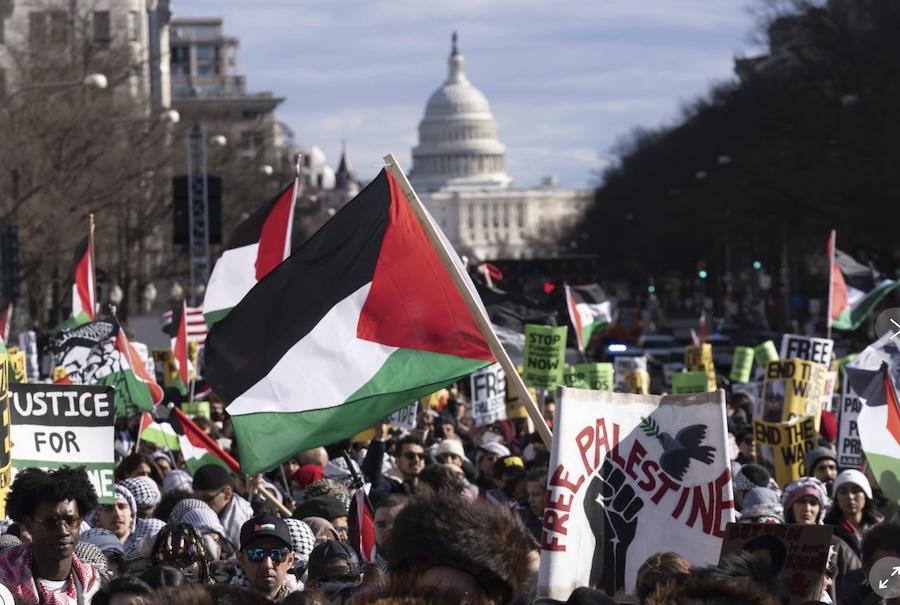
Photo of March in Washington : AP Photo/Jose Luis Magana as published by AP News
Thousands of protesters in one of the largest pro-Palestinian demonstrations to date in the US capital, Washington, called for a permanent ceasefire in Gaza and to stop US aid to Israel, as more than three months of Israeli offensive is killing 250 Palestinians per day.
Large crowds waved Palestinian flags and chanted “Ceasefire now,” and “Free Palestine,” while carrying banners and posters that read “End the War in Gaza.” Other signs said the Israeli government is practicing apartheid and charged US President Joe Biden with genocide.
Young protesters were wearing the traditional keffiyeh in solidarity with Palestinians.
(Organizers of the march in Washington said that 400,000 took part.)

Pro-Palestinian activists and supporters wave flags and carry placards during a National March for Palestine in central London on January 13, 2024. (Photo by AFP)
London, meanwhile, saw its seventh National March for Palestine since October 7 as demonstrators called for an immediate ceasefire in the Gaza Strip and demanded that the British government stop arming the Israeli regime.
(According to a mail received at CPNN from the London-based Stop the War Coalition, in London there were almost half a million protesters demanding an immediate ceasefire, led by the anti-war movement in the UK.)
Little Amal, a giant puppet of a Syrian child refugee, representing refugees and displaced people, joining a group of Palestinian children, attended the demonstration.
“While the British public largely supports a ceasefire in Gaza, the UK’s politicians have continued to fund and support the genocide,” Jeanine Hourani, a member of the Palestine Youth Movement attending the march in London said.
UK ‘complicit’ in Israel’s crimes
Palestine’s ambassador to the UK, Husam Zomlot, also joined the protesters calling for a ceasefire. He slammed the UK government for “complicity” with Israel.
“I stand before you with a broken heart but not a broken spirit,” Zomlot said addressing pro-Palestinian protesters in London as he described Palestine as a “nation of freedom fighters.”
He also congratulated South Africa for bringing a genocide case against Israel at the UN’s International Court of Justice.
The London march was one of several others being held in European cities including Paris, Rome, Milan and Dublin, where thousands also marched along the Irish people to protest Israel’s aggression against Palestinians.
Irish Protesters waved Palestinian flags, denouncing Israel’s genocidal crimes in Gaza, chanting “Free, Free Palestine” and “From the river to the sea, Palestine will be free.” They held placards critical of the Irish, US governments and Israeli regime.
(As reported by Common Dreams , “In Dublin, organizers of a march that saw more than 100,000 march through city streets called it the largest rally for Palestinian rights in Irish history.”)
(continued in right column)
Presenting the Palestinian side of the Middle East, Is it important for a culture of peace?
(continued from left column)
Rome hosts new pro-Palestine rally, thousands join demonstration
In Rome, thousands of demonstrators descended on a boulevard near the famous Colosseum, with some carrying signs reading, “Stop Genocide.”
Pro-Palestinian protesters also lauded South Africa for bringing Israel’s brutal military onslaught against Gaza to the International Court of Justice.
Rome photo

Rome hosts a new rally in solidarity with Palestinians in Gaza.
Malaysia
At rallies in Kuala Lumpur, Malaysia, people gathered at the United States embassy to send a message to Israel’s staunch ally. People carried placards that read “Stop the genocide,” as well as “Bombing children is not self-defense.”
Last month, the Malaysian government announced it would no longer allow Israeli-owned ships to dock in Malaysian ports. It also said any vessel en route to Israel would not be allowed to unload cargo at any Malaysian port.
Thousands of people also gathered outside the US embassy in Indonesia’s capital, Jakarta, waving Indonesian and Palestinian flags and holding signs that read “Boycott Israel” and “Ceasefire Now.”

Thousands of members from the Muslim community gathered in front of the US Embassy in Jakarta to protest against ‘genocide’ in Palestine and express their support for the Palestinian people.
South Africa protests
Similar protests took place in Johannesburg, South Africa as demonstrators gathered outside the US consulate. The crowd accused the US of complicity in the bombardment of the Palestinian people due to its military support of Israel since the war started.
The protest has been reinforced by South Africa’s case at the International Court of Justice (ICJ). The court in The Hague began hearings on Thursday over a charge that Israel is committing genocide in Gaza.
South Africa, which filed the lawsuit at the UN court in December, asked judges Thursday to urgently declare that the Tel Aviv regime has breached its responsibilities under international law since October 7, when it launched hostilities in the besieged territory.
The relentless Israeli military aggression has so far killed at least 23,843 people in Palestine, more than 10,000 of whom are children, while 60,317 others have been wounded.
Other European protests
(In Switzerland , an estimated 15,000 held their first national protest in Basel in support of Gazans since several German-speaking cantons introduced a ban on such actions, calling for an immediate and permanent ceasefire in the region.)
(Protests also took place in Amsterdam, Oslo, Uppsala and Tunis according to the Palestine Chronicle.

